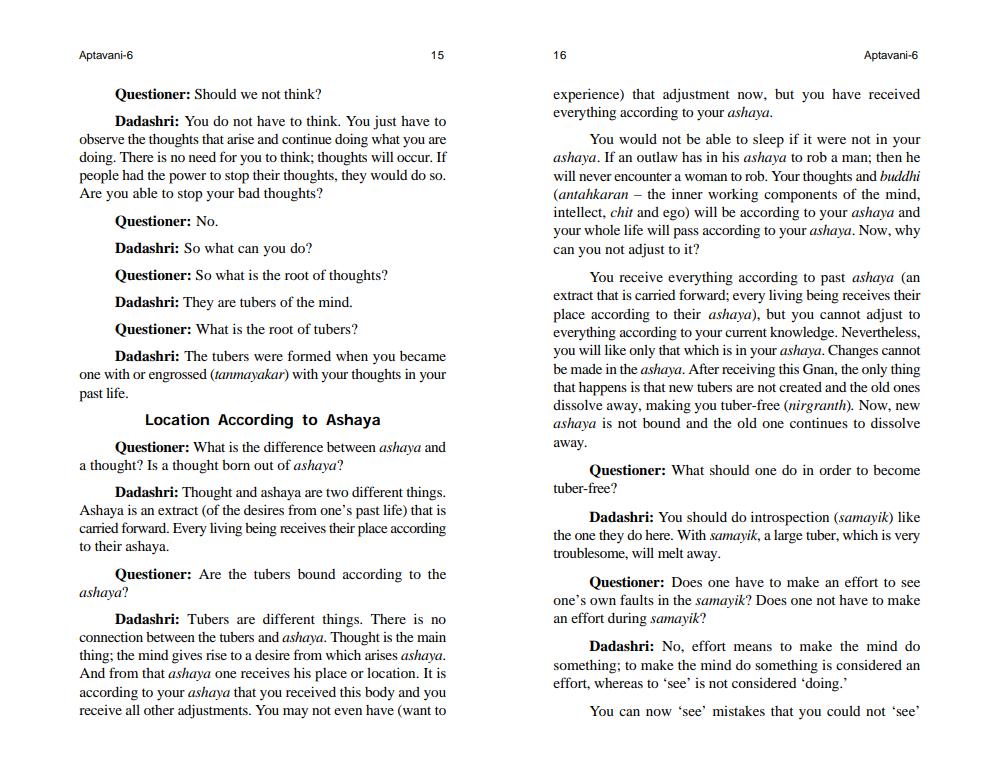________________
Aptavani-6
Aptavani-6
Questioner: Should we not think?
Dadashri: You do not have to think. You just have to observe the thoughts that arise and continue doing what you are doing. There is no need for you to think; thoughts will occur. If people had the power to stop their thoughts, they would do so. Are you able to stop your bad thoughts?
Questioner: No. Dadashri: So what can you do? Questioner: So what is the root of thoughts? Dadashri: They are tubers of the mind. Questioner: What is the root of tubers?
Dadashri: The tubers were formed when you became one with or engrossed (tanmayakar) with your thoughts in your past life.
Location According to Ashaya
Questioner: What is the difference between ashaya and a thought? Is a thought born out of ashaya?
Dadashri: Thought and ashaya are two different things. Ashaya is an extract (of the desires from one's past life) that is carried forward. Every living being receives their place according to their ashaya.
Questioner: Are the tubers bound according to the ashaya?
Dadashri: Tubers are different things. There is no connection between the tubers and ashaya. Thought is the main thing; the mind gives rise to a desire from which arises ashaya. And from that ashaya one receives his place or location. It is according to your ashaya that you received this body and you receive all other adjustments. You may not even have (want to
experience) that adjustment now, but you have received everything according to your ashaya.
You would not be able to sleep if it were not in your ashaya. If an outlaw has in his ashaya to rob a man; then he will never encounter a woman to rob. Your thoughts and buddhi (antahkaran - the inner working components of the mind, intellect, chit and ego) will be according to your ashaya and your whole life will pass according to your ashaya. Now, why can you not adjust to it?
You receive everything according to past ashaya (an extract that is carried forward; every living being receives their place according to their ashaya), but you cannot adjust to everything according to your current knowledge. Nevertheless, you will like only that which is in your ashaya. Changes cannot be made in the ashaya. After receiving this Gnan, the only thing that happens is that new tubers are not created and the old ones dissolve away, making you tuber-free (nirgranth). Now, new ashaya is not bound and the old one continues to dissolve away.
Questioner: What should one do in order to become tuber-free?
Dadashri: You should do introspection (samayik) like the one they do here. With samayik, a large tuber, which is very troublesome, will melt away.
Questioner: Does one have to make an effort to see one's own faults in the samayik? Does one not have to make an effort during samayik?
Dadashri: No, effort means to make the mind do something; to make the mind do something is considered an effort, whereas to see' is not considered 'doing.'
You can now see' mistakes that you could not see




